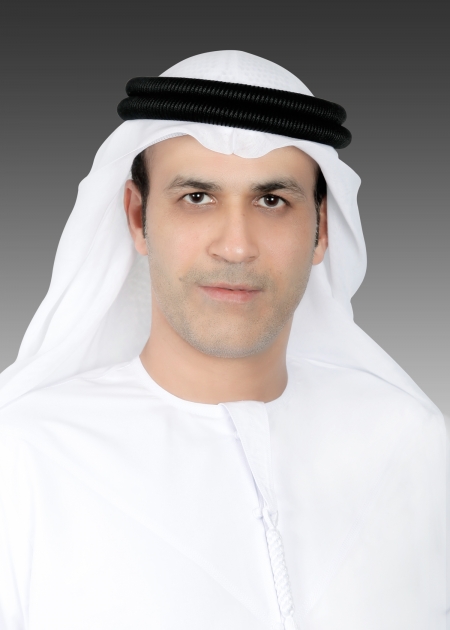
Mohap Organizes First Global Virtual Forum On Future Of Nursing And Midwifery Post-covid-19
Under the theme “A Forward-looking vision on the nursing profession post-Covid-19”, the Ministry of Health and Prevention, MoHAP, recently held the first international virtual forum to explore the future of the nursing profession post-Covid-19, in the presence of 640 specialists and experts from all over the world.
The forum coincides with the International Year of the Nurse and the Midwife 2020 in recognition of the vital role the nursing cadres plays in the front line of defense.
The discussions touched on the challenges faced by the nursing professionals during Covid-19 in terms of the administrative, clinical, and academic aspects and the requirements for enhancing the nursing profession.
Dr. Yousif Mohammed Al Serkal, Director-General of the Emirates Health Services Establishment, stressed the importance of holding the remote forum to assess the current situation and anticipate the future of nursing, in light of the exceptional efforts being made by nursing cadres in the first line of defense and the prominent position that nursing has occupied in the health system.
Al Serkal referred to the UAE’s leading experience in launching initiatives aimed at enhancing the attractiveness of the nursing profession, keeping abreast of evidence-based global practices and making the most of health information systems by adopting the highest standards of innovation in nursing practices and highlighting the active contribution and vital role played by the nursing staff in universal health coverage.
Innovation in nursing practices
In her opening remarks, Dr. Sumaya Al Balushi, Director of Nursing Department, MoHAP, underlined that the current global conditions have evidently demonstrated the importance of the nursing profession in the health sector and the need to optimize investment in it to achieve the country’s strategy, in terms of having a world-class health system that is completely ready to deal with various health emergencies and fulfill the objectives of the sustainable development and universal health coverage
Al Balushi mentioned that the UAE has attached special importance to the nursing profession, especially in the current circumstances that reflected the essential role of nursing cadres who have the honor of being an integral part of the front line health workers, pointing to the development of the nursing profession through the constant training, the utilization of information technology and research, and the adoption of the best innovation standards in nursing practices.
International Council of Nurses (ICN)
Howard Cotton, CEO of the International Council of Nurses, highlighted the Council’s role in supporting the nursing profession based on the global priorities in the nursing field, noting that the World Health Organization (WHO) has declared 2020 as the year of the nurse and midwife, underlining the need of the nursing cadres for further support by leaders and decision-makers and the importance of providing a positive work environment, as well as the provision of personal protective kit to maintain their health and help them do their jobs in a professional manner.
Dr. Ruwaida Al-Maaytah, Advisor to Princess Mona Al-Hussein for nursing and community health, member of the board of directors of the global campaign "Nursing Now", a member of the High Health Council of the Hashemite Kingdom of Jordan, shed light on the world’s nursing and midwifery report which focused on the importance of providing the support for the nursing cadres, including education, jobs, development of leadership skills.
“Global statistics indicate that there is a global shortage of nursing cadres, with the need to develop initiatives that support nursing cadres everywhere. There’s also a need to develop strategies that contribute to the implementation of the recommendations of the global report to support the vital role played by nursing cadres in health systems and to forge ahead in achieving global development goals and universal health coverage,” added Al-Maaytah.
Investment in nursing specialties
Dr. Arwa Owais, Nursing & Midwifery Regional Advisor, highlighted the measures that should be taken to support the nursing staff members, especially that the global research underlines the lack of nursing professionals, whether because of the lack of support and investment in nursing staff, or their migration to other workplaces, or the inappropriate work environment in some countries.
She reaffirmed the need to invest in other nursing specialties due to the continuous development and change witnessed in this profession. These specialties include critical care nursing, nursing informatics, and remote nursing.
Owais also underlined that the nursing cadres still need further support, especially after the physical, psychological, and social pressures they have confronted during Covid-19 pandemic.
Zulekha Yousef Al Hosani, Executive Director of Nursing at Sheikh Shakhbout Medical City, highlighted the City’s experience in handling the pandemic crisis, including redistributing of nursing cadres, implementing professional development programs for critical care nursing, and developing moral and psychological support programs. This has contributed to the optimal handling of the pandemic and the avoidance of infection transmission to nursing and health staff.
Academic nursing education
Dr. Nizam Al-Naseer, Dean of the College of Nursing at the Higher Colleges of Technology, spoke about the experience of distance learning strategies during the pandemic and the amendments introduced to develop the nursing educational process, stressing the importance of the proper planning to pursue the educational process and to incorporate education standards using distance learning methods.
The forum concluded with a set of recommendations, including the importance of investment in employment, nursing services, education, positive work environment, community nursing care, and clinical leadership, strengthening professional development systems, reconsidering education strategies in terms of the role of technology and the requirements for optimal integration with the virtual world, and implementing best practices in nursing education in terms of evaluation methods and clinical training.



























